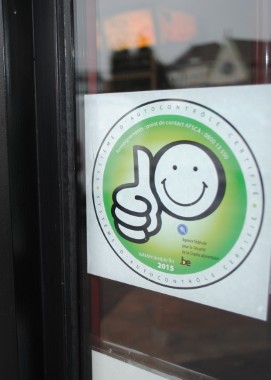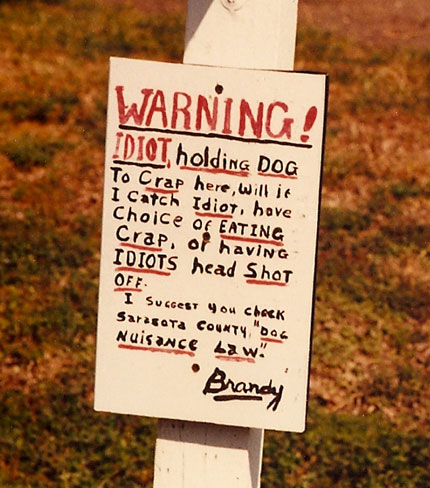ReptileChannel.com (another of my favorite reads) reports the Texas Department of State Health Services has proposed changes to the wording reptile retailers in Texas use on signs warning customers about salmonella. The deadline for the public to submit comments is Sunday, Nov. 21, 2010.
Current law requires all retail stores that sell reptiles to post warning signs and distribute written warnings about reptile-associated salmonellosis. The signs  are to include recommendations for preventing the transmission of salmonella. The proposed changes, according to the department, allow for consistency with the Centers for Disease Control and Prevention recommendations.
are to include recommendations for preventing the transmission of salmonella. The proposed changes, according to the department, allow for consistency with the Centers for Disease Control and Prevention recommendations.
If approved, the warning signs would have to include the following recommendations, at minimum.
• Persons should always wash their hands thoroughly with soap and running water after handling reptiles or reptile cages or after contact with reptile feces or the water from reptile containers or aquariums. Wash your hands before you touch your mouth.
• Persons at increased risk for infection or serious complications of salmonellosis, such as children younger than 5 years of age, the elderly, and persons whose immune systems have been weakened by pregnancy, disease (for example, cancer) or certain medical treatments (for example, chemotherapy) should avoid contact with reptiles and any items that have been in contact with reptiles.
• Reptiles should be kept out of households or facilities that include children younger than 5 years of age, the elderly, or persons whose immune systems have been weakened by pregnancy, disease (for example, cancer) or certain medical treatments (for example, chemotherapy). Families expecting a new child should remove any reptile from the home before the infant arrives.
• Reptiles should not be allowed to roam freely throughout the home or living area. Wash and disinfect surfaces that the reptile or its cage has contacted.
• Reptiles should be kept out of kitchens and other areas where food or drink is prepared or consumed. Kitchen sinks should not be used to bathe reptiles or to wash their dishes, cages or aquariums. If bathtubs are used for these purposes, they should be cleaned thoroughly and disinfected with bleach. Wear disposable gloves when washing the dishes, cages or aquariums.
The signs would also have to include a statement notifying customers that even though reptiles may not appear sick at the time of purchase, they may carry salmonella bacteria, which can make people sick.
The entire proposal is available at:
http://www.sos.state.tx.us/texreg/pdf/backview/1022/1022prop.pdf




.jpg) health inspections, he said.
health inspections, he said. are to include recommendations for preventing the transmission of salmonella. The proposed changes, according to the department, allow for consistency with the Centers for Disease Control and Prevention recommendations.
are to include recommendations for preventing the transmission of salmonella. The proposed changes, according to the department, allow for consistency with the Centers for Disease Control and Prevention recommendations..jpg) But that doesn’t stop a health department in Pennsylvania from proclaiming “free handwashing signs help keep petting zoos safe.”
But that doesn’t stop a health department in Pennsylvania from proclaiming “free handwashing signs help keep petting zoos safe.”

 And it gets better.
And it gets better.